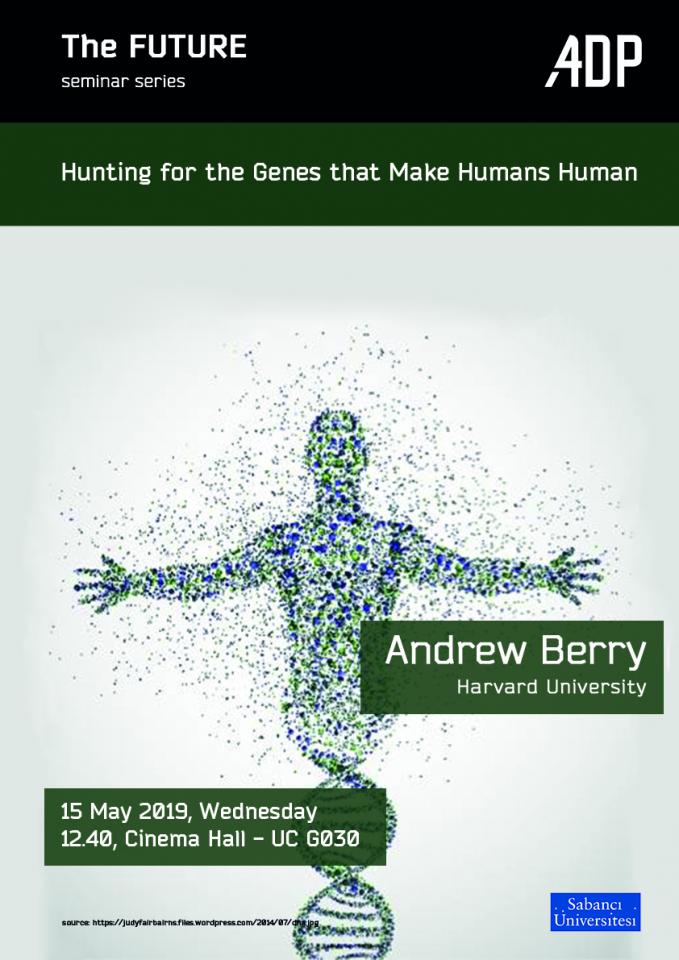FUTURE Seminar by Andrew Berry
“Hunting for the Genes that Make Humans Human”
Andrew Berry
Harvard University
Humans represent one branch of the Great Ape family tree, with our lineage having split off from the chimpanzee lineage about 7 million years ago. Over that period, genetic changes accumulated, resulting in the differences we see between us and our closest relatives. Curiously, even though many significant changes have occurred in our anatomy and behavior, the extent of the genetic differentiation between us and chimpanzees is limited. As early as 1975, Mary-Claire King and Allan Wilson determined that in fact human and chimp genomes are only around 1% different. Among those differences lie the key mutations that endow us with our uniquely human attributes. But 1% of 3 billion base pairs (the size of the human genome) is still a large number, so we need some means of filtering all these changes in order to enrich for the important ones. The key: looking for evidence of genes that have been under positive selection. We can distinguish two forms of natural selection. Negative (or purifying) selection eliminates deleterious mutations; positive selection increases the frequency of beneficial mutations, until, typically, they fix [ie go to 100%] in the population. The mutations we are interested in were under positive selection in ancestral populations. One way to identify genome regions undergoing positive selection is to look for Human Accelerated Regions. These are genome regions that are highly conserved across a large number of species (ie they are functionally important, meaning that virtually all mutations are selected against because the disrupt the function in some way), but that have evolved rapidly in the lineage leading to our species. This change from constraint to rapid evolution suggests the evolution of a new function. A second approach relies on ancient DNA, genome sequences derived from our ancestors. With these sequences, we can track over time the changes in populations caused by positive selection. The genetic underpinnings of humanness are surely complex, but we now have the genomic tools to make real progress.

